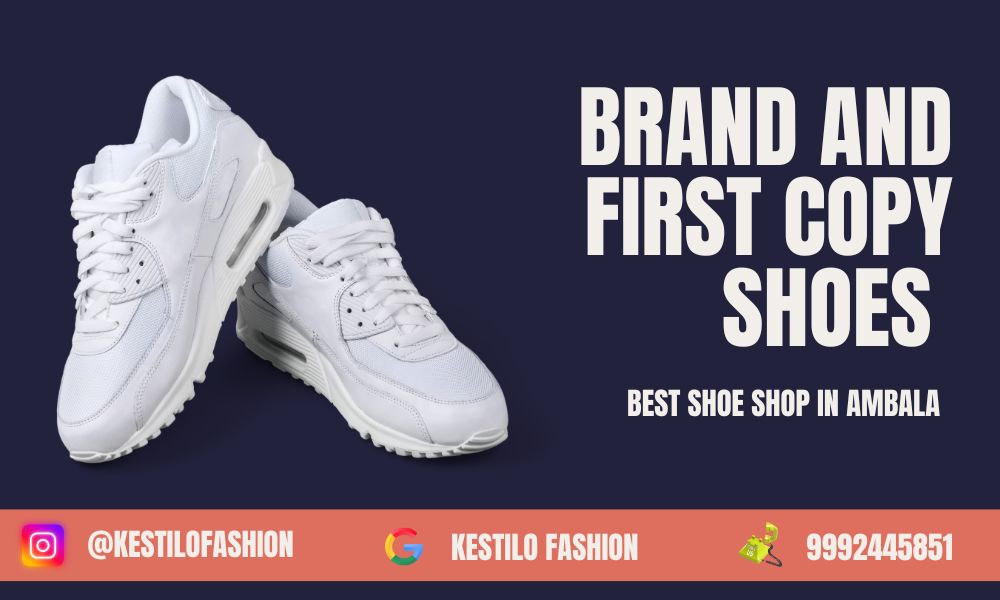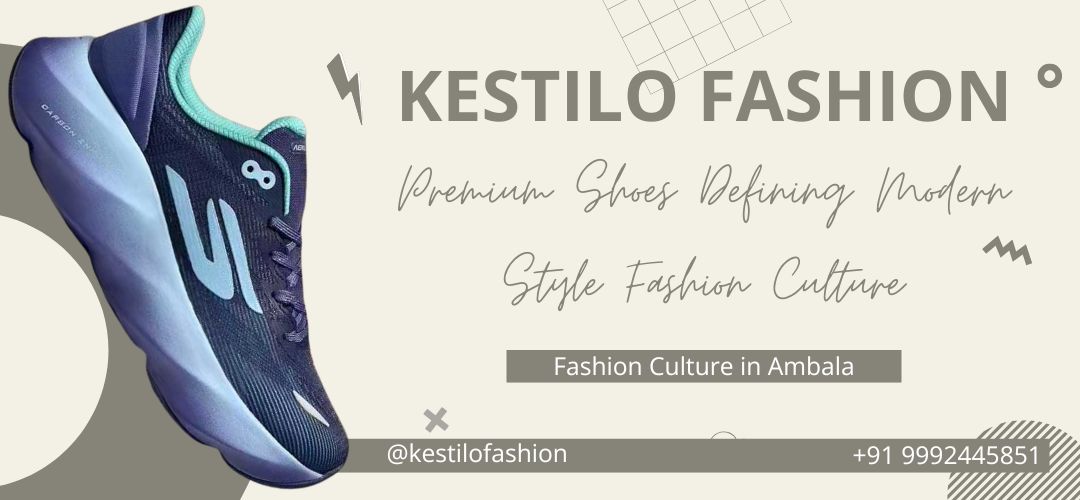Although managing a shoe company may appear straightforward on the surface, several obstacles must be overcome with astute tactics. The road to success is paved with obstacles such as consumer expectations, supply chain disruptions, authorization issues, and shipping concerns, regardless of whether you are selling branded shoes, first copy shoes, or premium footwear. It’s critical to comprehend these problems and come up with workable answers if you want to open the greatest shoe shop in Ambala.
Fulfilling Excessive Client Expectations
Customers have higher expectations than ever before in the cutthroat industry of today. They anticipate fashionable styles, excellent craftsmanship, and reasonably priced, copy footwear. Customers quickly go to competitors when a store doesn’t live up to these expectations. Because of this, shoe shop owners must:
Keep a broad range of styles, such as formal, sports, party, and casual attire.
Stay abreast of evolving fashion trends.
Provide both branded and first-copy sneakers at a reasonable price.
Offer top-notch customer support, including expedited exchanges and accommodating return procedures.
Customer satisfaction must always come first for a shoe shop in Ambala to gain the reputation of being the best in the city.
Getting Incorrect or Broken Items
Receiving defective or inaccurate inventory from suppliers is one of the frequent problems shoe sellers encounter. Customers who are waiting for their orders are likewise disappointed by this problem, which also slows sales. To get over this:
Retailers ought to collaborate with reliable vendors.
Before being accepted, each package needs to be examined again.
Keeping a positive rapport with wholesalers guarantees prompt replacements.
Customers demand first copy shoes to appear exactly like branded ones, so it’s even more crucial for retailers to check the quality. A small flaw can quickly escalate into a grievance.
Disruptions to the Supply Chain
For shoe retailers, supply chain delays can lead to major issues. Missed sales chances frequently result from supply delays colliding with seasonal demand for new styles. Import restrictions, transportation strikes, or abrupt shifts in consumer demand can all cause disruptions.
Stocking inventory ahead of time for wedding or holiday seasons and keeping a number of vendors is the best way to handle this difficulty. Planning inventory is essential for any astute Ambala retailer hoping to establish a reputation as the city’s top shoe shop.
Absence of invoices and authorization letters
Having the appropriate trademark authorization is essential when selling branded shoes. Retailers risk legal problems or losing the trust of their customers if they don’t have the proper authorization letters or invoices. Big brands frequently prefer to work with established distributors exclusively, which presents challenges for many merchants.
Due to this issue, a lot of shoes shop now stock first copy shoes, which offer customers fashionable styles at reduced prices. To maintain good customer trust, retailers must, however, always be open and honest about what they are selling.
Issues with Volumetric Weight and Shipping
One of the most significant challenges in operating a shoe business is shipping. Shoes are a large product in comparison to other products. Even a single pair of shoes arrives in a big box, and the volumetric weight goes up a lot when sending more than one pair. Shipping expenses rise as a result, which lowers profit margins.
This is less of a problem for neighborhood stores, but it becomes a significant problem for internet merchants who wish to ship shoes throughout India. Among the solutions are:
Negotiating discounts for bulk shipping with courier services.
Using little packaging without sacrificing the security of the goods.
Only providing free shipping when a minimum purchase quantity is met.
A business in Ambala can distinguish itself as the top shoe shop in Ambala, both online and offline, if it can effectively handle shipments.
Juggling First-Cop and Branded Shoes
Managing the combination of first-copy and branded shoes is another difficulty. First copy shoes are well-liked by those seeking style at a reasonable cost, whereas branded shoes draw those seeking status and authenticity.
Retailers must carefully balance the two groups. By providing both, a shoe shop may cater to all clientele, from those seeking high-end brands to those on a tight budget. This diversity can contribute to the development of a devoted clientele.
Promotion and Rivalry
It isn’t easy to distinguish out when there are so many local shoe retailers and internet marketplaces. Attracting and keeping clients is a struggle for companies. Strategies that work include:
Social media promotion using eye-catching images and videos.
Holding festival specials and seasonal discounts.
Providing loyal customers with loyalty programs.
Guaranteeing high-quality service to generate powerful word-of-mouth.
Customers will start to identify a store with dependability, style, and trust if it continuously markets itself as the best shoe shop in Ambala.

In conclusion
Running a shoe shop involves more than just selling shoes; it also involves successfully handling a variety of difficulties. Every element matters for success, from shipping prices to authorization letters, supply chain interruptions, and customer expectations. Retailers can establish a solid reputation by comprehending these difficulties and implementing astute tactics.
Customer pleasure is the main objective, regardless of whether high-end or first-copy footwear is being sold. Any aspirational business may become the best shoe shop in Ambala with careful preparation, trustworthy suppliers, effective shipping options, and effective marketing.




